Please look at the code below. This program simply saves a 33-character-length string "!!!!!!!!!!!!!!!!!!!!!!!!!!!!!!!!!" with an additional byte value of "33".
using System.Text;
namespace Test
{
internal class Program
{
static void Main(string[] args)
{
string filepath = args[0];
using (var stream = File.Open(filepath, FileMode.Create))
{
using (var writer = new BinaryWriter(stream, Encoding.UTF8, false))
{
writer.Write(new string('!', 33));
writer.Write((byte)33);
}
}
using (var stream = File.Open(filepath, FileMode.Open))
{
using (var reader = new BinaryReader(stream, Encoding.UTF8, false))
{
Console.WriteLine(reader.ReadString());
Console.WriteLine(reader.ReadByte());
}
}
Console.ReadKey();
}
}
}
And here is the binary representation of it:
Apparently, the first starting "ox21" is the length of the string - but how on earth does C# know?
